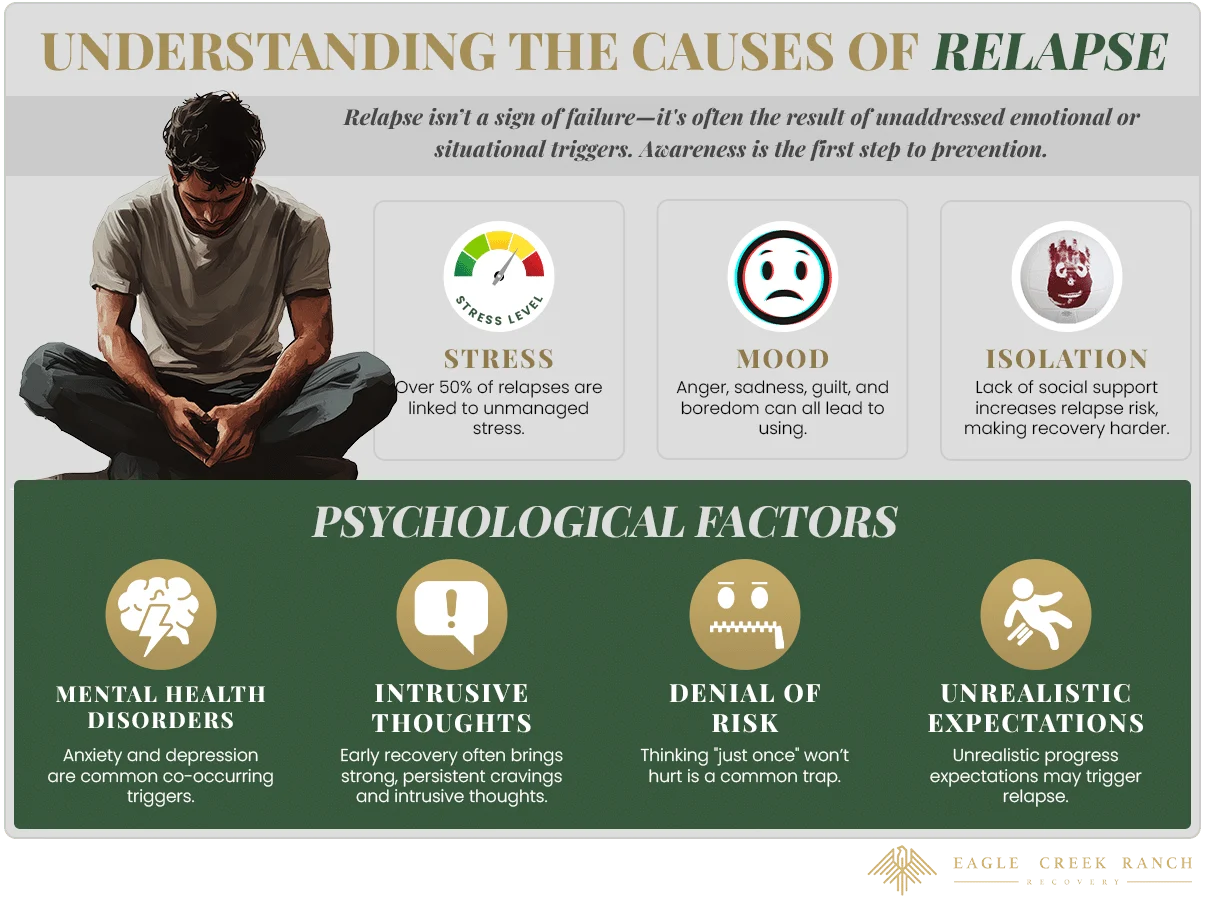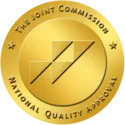 One of the biggest worries that many recovering alcoholics and addicts have is relapsing. Relapses can happen at any time and are highly normal. For those trying to beat an addiction, it is even expected. Many people undergo multiple relapses before even being able to sustain long-term sobriety.
One of the biggest worries that many recovering alcoholics and addicts have is relapsing. Relapses can happen at any time and are highly normal. For those trying to beat an addiction, it is even expected. Many people undergo multiple relapses before even being able to sustain long-term sobriety.
Having relapsed does not mean that the treatment process has failed or is ineffective; rather, it is the stage where the learning process takes place and is only suggested for the treatment to be adjusted. Relapses help an addict become aware of their mistakes and realize their need for improvement.
As every treatment process is unique, not all patients may experience relapse. Some addicts are successfully able to complete their recovery without even encountering it.
To break the cycle of addiction, relapse prevention techniques for substance abuse are essential during and after treatment. Learn more about how relapse prevention techniques for substance abuse can help you or a loved one recover at Eagle Creek Ranch Recovery in Nampa, Idaho.
What is Relapse?

Relapse is the return to drug use or other addictive behaviors after a period of abstinence or reduced usage. It typically begins gradually and gets worse and worse. Relapse is a common phenomenon in the recovery process and can be influenced by various factors such as stress, peer pressure, and exposure to triggers.
When a relapse occurs, it is important to understand what led to the action and what its effects were. Relapse can increase the likelihood of negative outcomes such as an overdose and other health problems. However, it can be avoided if relapse prevention techniques are understood by both addicts and those around them. Keep in mind that it is part of the journey toward long-term recovery and sobriety.
The 3 Stages of Relapse
Contrary to the common conception, which claims that relapse occurs quickly, it takes time. Relapse happens in three stages: emotional, mental, and physical.
The first of the three stages of relapse is called emotional relapse. This happens when a person starts using drugs or alcohol to cope with unpleasant feelings like stress, anger, or depression. Emotional relapse is often a precursor to physical relapse and can occur without the person even realizing it. The following are some of the indications of an emotional relapse that one should be aware of:
- Suppressing your feelings
- Not attending meetings of a recovery support group
- Isolating self from family and friends
- Unhealthy eating and sleeping patterns
- Failing to properly manage one’s anxiety, anger, or other emotional issues
- Intolerance
- Defensiveness
- Mood changes
- Poor self-care physically or emotionally
Recognizing that you are experiencing an emotional relapse and changing your behavior as soon as possible is essential for preventing this stage. If you do not start taking care of yourself, you’ll wear out quickly, and you will be more likely to be at greater risk of moving into the next stage — mental relapse.
When someone experiences a mental relapse, they begin to fantasize about using drugs or alcohol again even though they
Mental relapse starts when an individual begins to fantasize about using drugs, even though they haven’t used them. It is described as a war going on inside one’s mind – part of them wants to use it, while the other part doesn’t. Some of the signs of mental relapse include:
- Cravings or strong urge to use alcohol or drugs regularly
- Thinking about the people, places, and things from the past
- Interacting with former acquaintances who abuse alcohol or other drugs or hanging out with them
- Swapping one addictive chemical for another or known as bargaining
- Thinking about using it
- Preparing for a recurrence
In mental relapse, an individual may start to have thoughts such as “I can handle it,” “I don’t need to go to therapy anymore,” or “I can control my use this time.” This kind of thinking can lead to the third stage of relapse known as physical relapse, where the person engages in the behavior they are thinking about.
Physical relapse happens when an individual returns to substance use after a period of abstinence. Physical relapse is said to be the most dangerous stage because this is when an individual typically discontinues medication. As the pull of addiction grows stronger, it becomes more difficult for an individual to make the right decisions.
Physical relapse normally begins with mental or emotional relapse and is the result of a series of events. Physical relapse can occur suddenly or gradually over time, beginning with small slipups and later progressing to greater ones. Individuals in recovery should be aware of their triggers, have a strategy in place to deal with them, and seek support from others to help prevent physical relapse.
Causes of Relapse
People relapse for various reasons, and the causes of relapse can vary from person to person. Some common reasons for relapse include:
- Stress. Stressful life events or daily stressors can trigger cravings and lead to substance use.
- Exposure to Triggers. Being in an environment or around people associated with substance use can trigger cravings and lead to relapse.
- Lack of Support. A lack of support from family, friends, or treatment providers can increase the risk of relapse.
- Undiagnosed or Untreated Mental Health Conditions. Mental health conditions such as clinical depression or anxiety disorders can increase the risk of relapse if left untreated.
How Common is Relapse?
Relapse happens frequently throughout the recovery period and typically happens shortly after someone leaves treatment, however, it can also recur later on. The frequency and likelihood of relapse can vary based on many factors, including the type of substance or behavior, the individual’s support network, and their overall mental and physical health.
According to research, the average relapse rate for substance abuse and addiction is between 40% to 60% and is often higher for those with a co-occurring mental health disorder. Keep in mind that with the proper support and resources, individuals can overcome relapse and continue on their recovery journey.
6 Helpful Relapse Prevention Techniques
Quitting is not an easy process, but it can be a very satisfying path. The ultimate goal of relapse prevention is to promote lasting recovery and help individuals achieve a fulfilling and substance-free life.
There are both internal and external triggers. Internal triggers can be anxiety, stress, anger, and low self-esteem. External triggers, on the other hand, are people, places, or things that remind one of their past uses. Identifying both of these types of triggers can lessen the possibility of relapsing. Make a list of your triggers and develop strategies to avoid or manage those kinds of triggers.
One of the most frequently advised relapse prevention techniques for substance use is self-care. The importance of prioritizing self-care is a crucial aspect of continued recovery and relapse prevention and cannot be overstated. It is essential to identify self-care practices that are effective for each individual. Here are some self-care strategies that can help avoid relapse:
- Exercise: Regular physical activity can help reduce stress, improve mood, and promote overall physical and mental health.
- Healthy Eating: A balanced diet can provide the nutrients and energy needed to maintain physical and mental well-being.
- Good Sleep Habits: Adequate sleep is essential for physical and mental health and can help reduce the risk of relapse by reducing stress and improving mood.
- Stress management: Engaging in stress-reducing activities such as meditation, deep breathing yoga, or mindfulness can help reduce cravings and prevent relapse.
- Hobbies and Interests: Engaging in hobbies and other enjoyable activities can provide a sense of purpose and fulfillment and can help distract from cravings.
Regularly attending a support group like Alcoholics Anonymous (AA) or Narcotics Anonymous (NA) offers support, accountability, knowledge, and the chance to connect with others who share the same struggles. It is best to be surrounded by people who can provide emotional and practical support. Similarly, it’s recommended to avoid hanging out with friends whose lifestyle choices can unfavorably influence a relapse.
Even if you have never become dependent on other substances or activities, It is important to refrain from using them. Alcohol use is not advised, for example, if the patient has been identified as cocaine dependent.
The main relapse prevention technique used during treatment is CBT. Cognitive-behavioral therapy, or CBT, focuses on identifying and changing negative thought patterns and behaviors that can contribute to substance use and addiction. CBT is often used as part of a comprehensive treatment plan for addiction. It can be a useful tool in preventing relapse and promoting long-term recovery.
The best people to analyze a possible relapse and design an effective routine are professionals. Addiction psychologists, physicians, and psychiatrists are experienced enough to teach helpful relapse-prevention techniques. Learn more about inpatient programs and outpatient programs and speak with our committed healthcare team!
Recover With Relapse Prevention Techniques at Eagle Creek
At Eagle Creek, we focus on relapse prevention as part of our treatment process. Please don’t hesitate to get in touch with us if you need additional details about our programs and receive help right away!

Clinical Director
Kendall Maloof is the clinical director at Eagle Creek Ranch Recovery. She is a licensed marriage and family therapist and has held multiple leadership roles before settling here at Eagle Creek Ranch Recovery. Kendall received her master’s degree in marriage and family therapy from the Chicago School of Professional Psychology in 2016. Her career in mental and behavioral health began in 2014 when she took up internships in both the nonprofit and for profit sectors. She interned at multiple reputable companies, such as The Living Success Center and 449 Recovery in California.
In 2019, Kendall became the clinical director of Sunsets Recovery for Woman, a dual diagnosis program in southern California. Kendall is a natural leader. She has an incredible ability to problem solve and stay calm in any situation. Kendall never fails to show up when she is needed, and her calm demeanor makes her team and clients feel at ease. Eagle Creek Ranch Recovery is proud to have Kendall as our clinical director.



